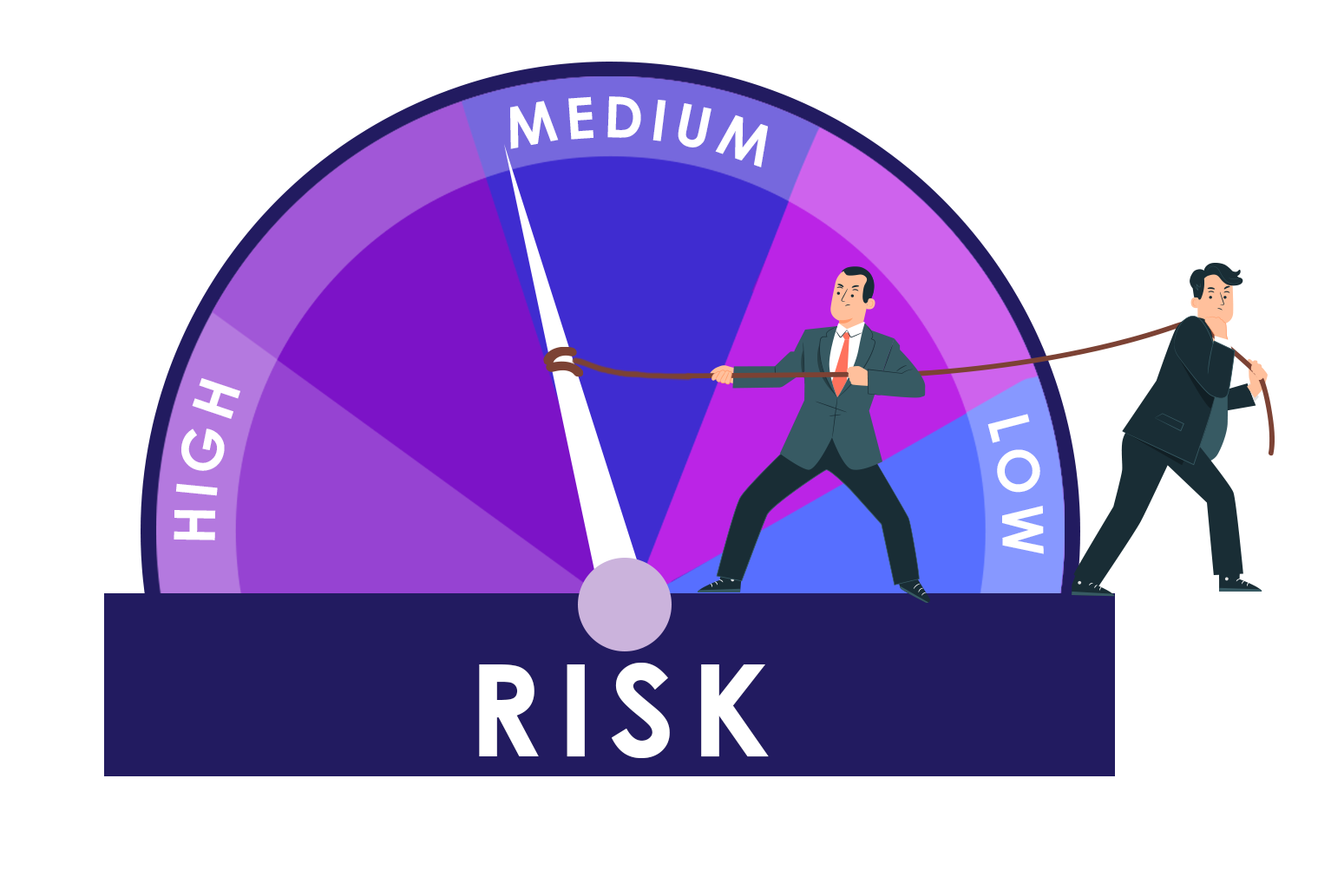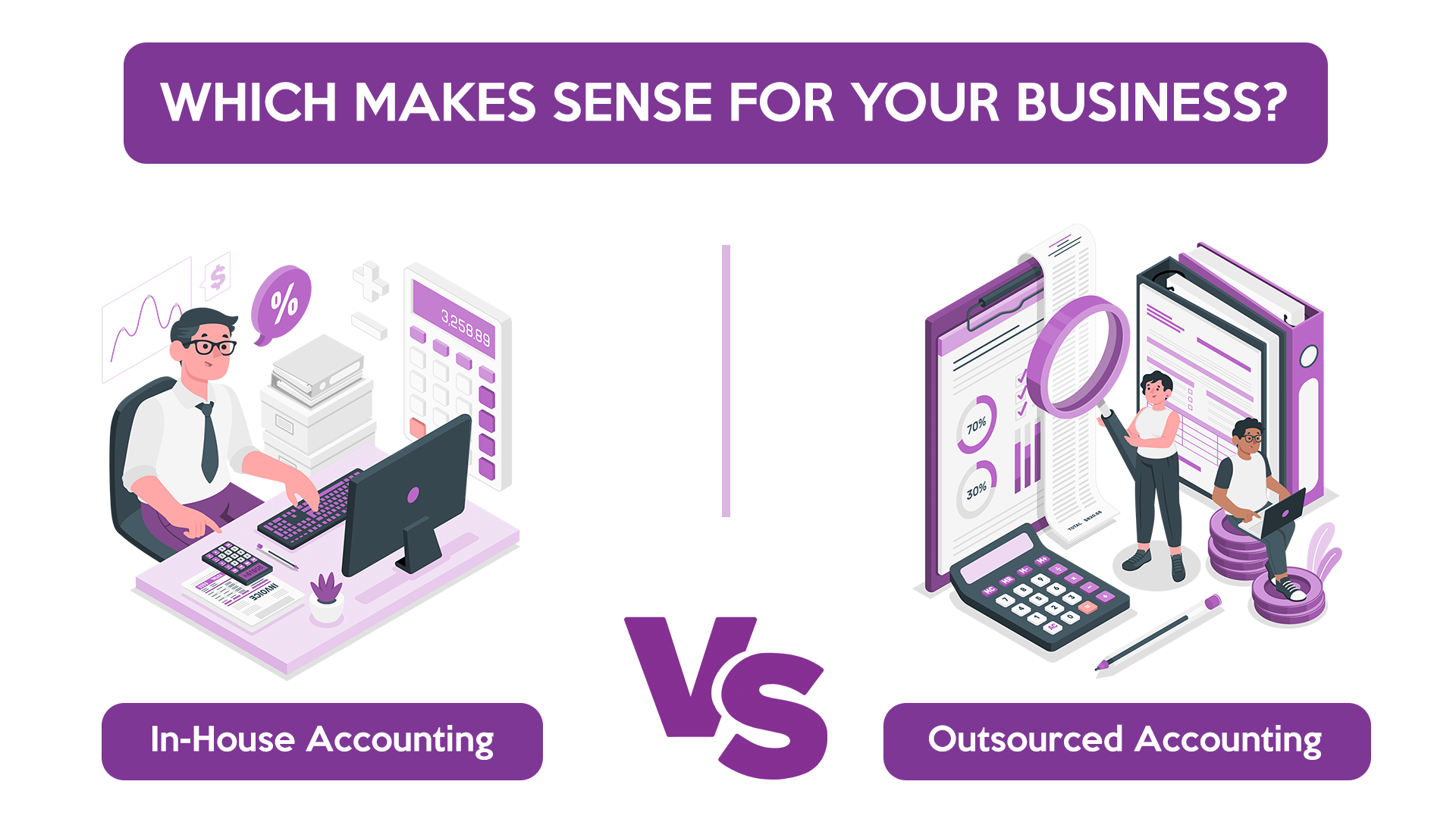Business owners want to make sure that their operations are carried out with little to no errors or problems. The accounting function is a crucial part of every business from start-up companies to large corporations. It is an essential function that demands proper execution and poor management can cause serious consequences.
As businesses expand, managing accounting internally can present a number of difficulties that can affect financial operations and impair overall business operations. This is why many businesses are outsourcing their accounting and finance services. In this article, we will explore the reasons why outsourcing accounting services seems to be a viable option for many businesses, the factors that affect the cost of outsourcing this function, the comparison with keeping it in-house, and what to look for in an outsourcing company.
Why Should You Outsource Accounting?
Businesses can gain from outsourcing in a number of ways, making it an appealing choice. Here are some of the common reasons why you should outsource accounting.
Cost Savings
One of the most obvious benefits of outsourcing is cost savings. Outsourcing reduces labor costs. When you keep an in-house accounting team, you have to take care of the recruitment and training expenses, salaries, benefits, and overhead costs. Choosing to outsource accounting services, however, eliminates the need for these efforts and expenses because your outsourcing partner will handle it for you.
Access to a Larger Talent Pool

Accounting demands certain knowledge and expertise. When you hire an employee, you may only have access to a small talent pool. Outsourcing, on the other hand, gives your organization access to a larger pool of talent across different regions. They are also easy to onboard because they typically specialized in specific roles and tasks.
Moreover, training an in-house employee to be an expert in a specific role takes time and money. By outsourcing accounting services, you can get instant access to experts who can bring in new initiatives and improve your business functions.
Focus on Core Operations
Running a business involves many tasks, many of which have nothing to do with your core business objective. Managing accounting duties take a lot of time. Outsourcing accounting services will allow you to concentrate on your core business activities and draw in more customers while leaving the accounting tasks in the hands of your outsourced accounting team.
Risk Management

Accounting service providers have specialized in risk assessment and mitigation. They can identify potential financial risks, such as fraud, errors, and non-compliance with regulations, and put in place the necessary internal controls and risk mitigation strategies.
In terms of regulations and laws which constantly change, professional accounting service providers typically stay updated with the latest regulations and laws, and ensure compliance in their operations.
What Impacts the Cost of Outsourcing Accounting?
Location of the outsourcing provider
Labor costs vary significantly between regions or countries. Countries with lower labor costs usually charge lower service fees compared to countries with higher labor costs. Tax rates and regulatory requirements also vary per country and can affect the overall cost of outsourcing accounting.
Scope and complexity of accounting services
There are several accounting services such as bookkeeping, accounts payable, payroll processing, tax preparation and planning, auditing, budgeting and forecasting, and financial analysis. The costs of outsourcing accounting services vary depending on their complexity.
For example, basic bookkeeping services may be less expensive than more complex tasks like tax preparation and planning.
Outsourcing provider’s expertise and experience
Accounting service providers may charge more for their services if they have specialized knowledge and industry-specific experience.
Some industries have unique accounting requirements and regulations that require a professional who understands these complexities to be able to do the job. Complex and customized accounting services require additional effort from the outsourcing provider, which may justify higher costs.
Service Level Agreements (SLAs) and Customization
SLAs typically specify the performance criteria that the service provider is expected to meet. It may include response and turnaround times, accuracy standards, and other performance metrics. Higher service level requirements may result in higher costs to cover the costs of achieving those requirements.
SLAs also involve penalties for service failures or incentives for exceeding the service level targets. Both can impact the overall cost of outsourcing.
Technology and Infrastructure
The use of automation technologies can streamline and automate time-consuming tasks in accounting. Service providers typically invest in specialized tools to deliver services efficiently. The costs associated with acquiring and maintaining these tools may be part of the outsourcing client’s service fee.
Contract Duration
Longer contract terms may result in possible cost savings in terms of volume discounts, price stability, and reduced termination fees, but may involve higher contract management costs. Shorter contract durations may offer flexibility and scalability, but they might also increase the costs because they require more frequent negotiations and adjustments.
Size of the Business
Larger businesses usually have higher transaction volumes, which affects the workload of the accounting processes. A considerable amount of work requires more resources such as more staff and more time to handle all the transactions and may result in higher service fees.
Businesses with multiple entities, diverse revenue streams, or multiple currencies may require a more complex accounting service and these can all affect the overall cost of outsourcing accounting.
Regulatory Compliance Requirements
Compliance with tax regulations, financial reporting standards, industry-specific regulations, and data privacy usually requires expertise and knowledge. All these regulatory requirements may require additional effort and resources from the outsourcing providers to deliver the service and will also impact the cost of outsourcing engagements.
Average Costs to Outsource Accounting
Depending on the size of the business, the average cost of outsourcing accounting can vary. Here’s an overview of the average cost to outsource accounting based on business size:
Small Businesses
Small businesses usually have a lower volume of transactions and simpler accounting needs. On average, outsourcing accounting services may range between $500 and $5,000 per month for small businesses.
Medium-Sized Companies
Medium-sized businesses may expect to be charged from $2,000 – $5,000 per month for more complex accounting services. The final cost may still vary depending on the location of the provider, the complexity of the tasks, and the level of expertise of the outsourcing partner.
Large Enterprises
Compared to small and medium-sized businesses, the outsourcing expenses for large enterprises can be greater due to their higher transaction volumes, complex accounting needs, and more sophisticated reporting requirements.
Large enterprises may expect to pay tens of thousands of dollars per month for complex and customized accounting services.
Outsourcing Accounting vs. In-house Accounting – Direct Comparison

Initial Setup Costs
When you outsource accounting, the initial setup cost includes a setup fee or a retainer fee for the services of the outsourcing agency. You may also be charged for the usage fees associated with the use of a specific software/technology.
On the other hand, if you choose to keep your accounting team in-house, it will include recruitment costs, salaries, benefits, and onboarding expenses. You may also need to invest in software licenses or subscription fees, and the hardware and IT infrastructure needed to support this. Office rent, utilities, furniture, and other office supplies are also part of the initial setup costs.
Ongoing Expenses
Outsourcing accounting involves ongoing service fees payable to your outsourcing partner. Depending on the agreement, it could be an hourly rate, monthly retainer fee, or project-based fee. Additional fees may also be charged to you for special services provided.
In an internal accounting department, you’ll pay for ongoing salaries, benefits, and other compensation of your employees. Licensing, subscription fees, and maintenance of the IT infrastructure will be part of your ongoing expenses, along with the office rent, utilities, and office supplies.
Total Cost of Ownership
Compared to setting up an internal accounting team, outsourcing accounting may require lower initial setup costs. You might not need to hire and train staff, buy software licenses and hardware to support it, or set up an office space. Outsourcing also reduces administrative costs since you may not need to manage an in-house team or handle taxes, and other employee-related expenses.
Keeping your accounting team in-house may involve higher initial setup costs. Ongoing expenses may add up over time. There is, however, increased control over your processes and outcomes as compared to an outsourced team.
Choosing the Right Accounting Outsourcing Provider
Reputation and Experience
Ensure that the accounting service provider has qualified accountants who are capable of handling the accounting requirements of your business. Look for credentials and certifications.
Services offered
Check the accounting services offered by the provider and ensure that they align with your business needs.
Pricing and Flexibility
Compare pricing among different providers. Make sure that their pricing structure fits into your budget without sacrificing the quality of service.
Quality of Service
Mistakes in financial records or tax filings can have serious consequences. Ensure that your accounting service provider delivers high-quality service to avoid financial penalties and legal liabilities due to errors, regulatory non-compliance, or inaccurate financial statements.
Data Security
Data security is crucial in accounting services. Choose a service provider that has strong security measures in place to protect your financial data. Check their data encryption processes and backup and disaster recovery procedures.
Integration with Existing Systems
Integration with your existing accounting system is important to ensure seamless operations, accurate and consistent data across different systems, and efficient accounting processes. Make sure that the accounting service provider has knowledge and experience in integrating different systems.
Processes
A service provider with well-defined processes will ensure consistency in the service they provide. It contributes to reliable monthly financial reporting, effective financial management, and a successful partnership with its clients.
Outsourced accounting services have been a popular strategy for companies looking to optimize their financial operations. It offers many advantages like cost savings, access to a larger talent pool, efficient management of financial risks, and focus on core operations.
While cost savings is a significant advantage of outsourcing accounting, it is essential to carefully evaluate the factors that may affect the overall cost of outsourcing including the location of the outsourcing provider, the scope and complexity of the services required, the outsourcing provider’s expertise and experience, SLAs, technology, contract duration, size of the business, and regulatory compliance requirements.
Despite the variances in cost, more often, organizations can save money by outsourcing accounting compared to hiring and managing an in-house accountant.
In choosing an outsourced accounting firm, considering their reputation and experience, services offered, pricing and flexibility, quality of service, data security, knowledge with integration, and processes will help you decide which one best fits your business needs and budget. Because every outsourcing agreement is different, it is essential to carefully assess the particular demands and requirements of your business to determine the financial effects of outsourcing accounting services.



Leave A Comment
You must be logged in to post a comment.